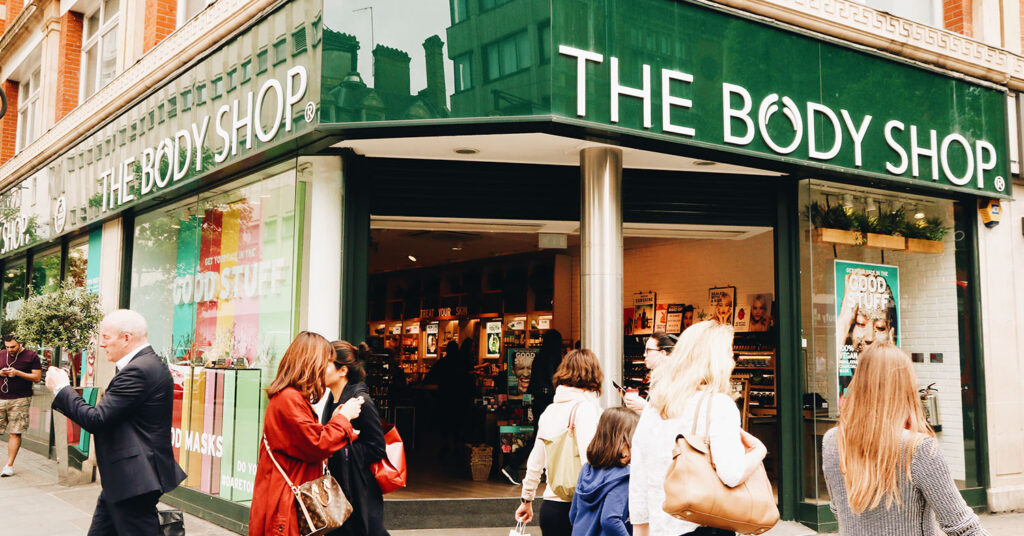The Body Shop is aiming to be 100 percent vegan by the end of 2023.
The British cosmetics and beauty company just announced that The Vegan Society will be certifying its entire formulations portfolio. Approximately half of The Body Shop’s products are already vegan-friendly, though several others include honey, beeswax, lanolin, and shellac.
Vegan Body Shop
Previously, The Body Shop said it was “moving away from using any animal-derived products,” and has not created any new or additional items featuring lanolin or shellac. Earlier this year, it even launched an updated version of its classic “White Musk” in a recyclable bottle and made with a vegan recipe.
“Our decision to go 100 percent vegan is a natural next step for The Body Shop,” said the company’s global brand director, Lionel Thoreau, as reported by Global Cosmetics News.
The chain also announced plans to roll out refill stations at 500 stores later this year, with 300 more to follow in 2022. The Body Shop pledged to extend its existing recycling scheme to 800 stores in 14 markets by the end of 2021.
The company has said that all of its body and haircare products will be fully recyclable by 2025. Currently, over 68 percent of the Body Shop’s packaging is recyclable.
“Vegan beauty is a critical next step in our sustainability and environmental endeavors,” he added. “This, along with our global refill and in-store recycling programmes makes The Body Shop a destination for ethically-minded customers.”
The refill and recycling schemes mark the companies first steps towards a circular economy model. This will help to reduce plastic and other waste both in store and at home.
Is the Body Shop Really Sustainable?
The Body Shop was founded in 1976 by Dame Anita Roddick. It became one of the first beauty companies to emphasize vegetarian, cruelty-free, and sustainable ingredients.
While it does currently stock products containing animal-based ingredients, the chain clearly labels its vegan items. Customers can also make vegan-only searches on The Body Shop Website.
Over the years, the company has partnered with NGOs and activist organizations such as Amnesty International and Greenpeace. Roddick herself, who passed away in 2007, remained outspoken against unrealistic beauty standards in the industry as a whole.
However, The Body Shop has also received some criticism for greenwashing. The company is notably opposed to trade unions and has been criticized for underpaying staff.
In 2006, The Body Shop was bought by L’Oreal, the largest cosmetics and beauty brand in the world and a company with a long and controversial history of animal testing, corporate misconduct, false advertising, and discrimination, prompting some to boycott the brand.
But despite these controversies, the Body Shop has also received praise for its early prioritization of cruelty-free products and practices. And Roddick continues to be celebrated for her pioneering role in the beauty and cosmetics industry.
In 2017, the Body Shop was purchased by Natura & Co, a Brazilian company recently recognized for its ethical business practices by the Ethisphere Institute. The Body Shop received its official B-Corp certification in 2019.
For more on ethical beauty, check out LIVEKINDLY’s guide to brands here.


